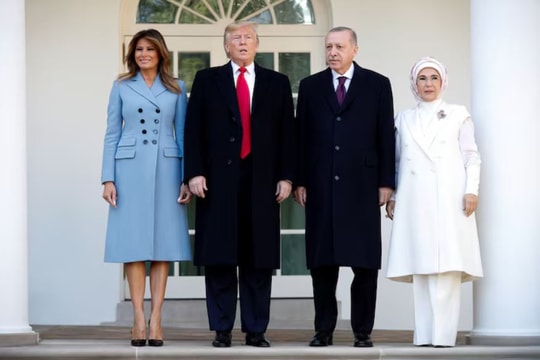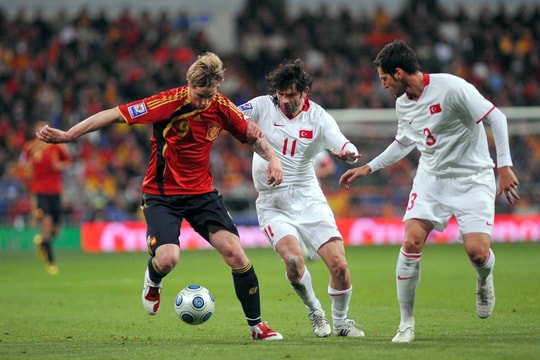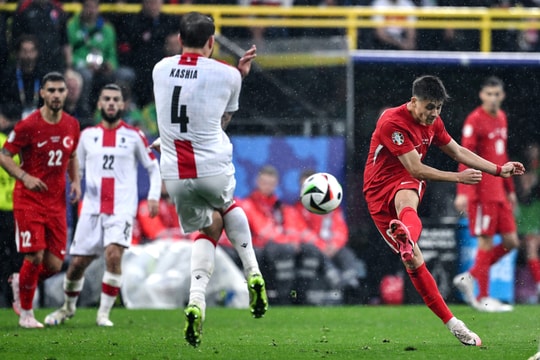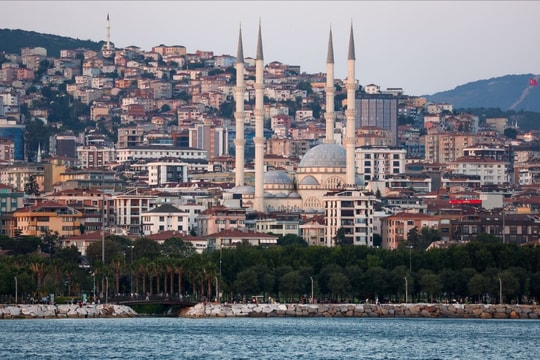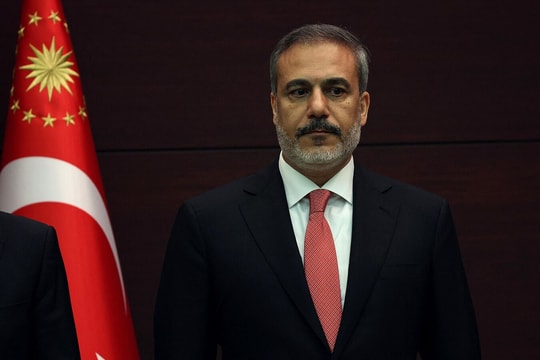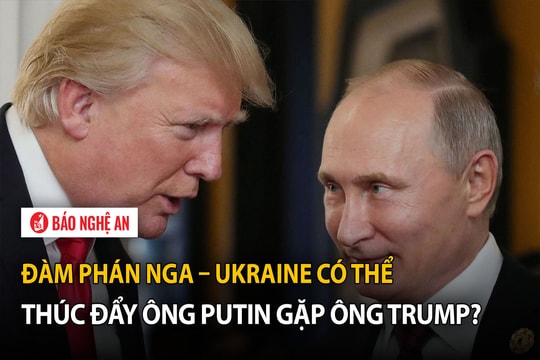Why the Turkish military coup failed
With divisions in the military, the coup group could not succeed against a President Erdogan with widespread popular support.
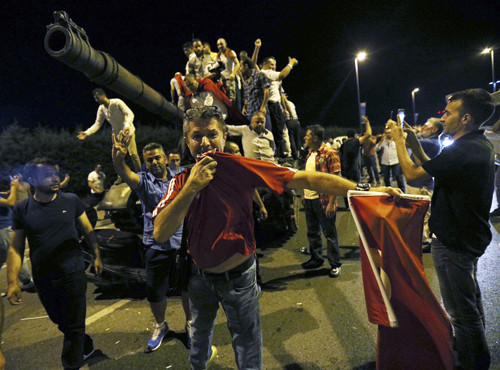 |
Turkish people surrounded the coup group's tanks. Photo: Reuters |
On July 16, Turkish President Recep Tayyip Erdogan announced that the military coup to overthrow his government last night had been defeated, and vowed to severely punish those behind the plan. According to analysts, the failure of the coup was predictable, because the influence of the coup faction was too weak as well as the overwhelming support for Mr. Erdogan.
The global intelligence analysis site Stratfor believes that the group of Turkish officers and soldiers who staged the coup on the night of July 15 had a great advantage: surprise. They attacked at the exact time President Erdogan was on vacation, surrounding and occupying strategic locations in the capital and Istanbul city near midnight, the time when security forces were least prepared.
The speed with which the coup troops deployed to take over key positions of power in major cities shows their high level of organization and efficiency. However, in addition to those advantages, they lack the factors that, according to analysts, play a decisive role in the success or failure of a coup.
The first factor is unity and consensus within the military. There are many signs that the commanders who led this coup are supporters of the Gulen movement and have some influence within the military. But the important thing is that the Gulen movement only knows how to exploit divisions within the military, not unite the generals.
The Gulen movement is a transnational Islamic movement that emerged and spread in Türkiye in the 1980s, led by Muslim cleric Fethullah Gulen, who now lives in exile in the United States. Its members began infiltrating the gendarmerie, where background checks are relatively lax, and then gradually "infiltrated and climbed" into the commanding ranks of the army.
Also known as the Hizmet (Service) movement, it has drawn in high-ranking government officials, including police chiefs and prosecutors in charge of anti-corruption investigations. President Erdogan has gradually come to realize that the Gulen movement has become too powerful, becoming what he calls a “state within a state.”
Since 2014, Erdogan has been purging the Turkish government and media of Gulen supporters. However, the influence of the Gulen movement in the military has not been completely eliminated. According to Stratfor experts, it is likely that the Gulen movement has learned some secrets of high-ranking generals in the military and is pressuring them not to remove them.
When the coup group announced its seizure of power on television, senior generals in the Turkish military immediately condemned their actions and expressed support for Mr. Erdogan. This shows that the coup group was unable to unite and rally the entire military force to carry out their adventurous actions, observers commented.
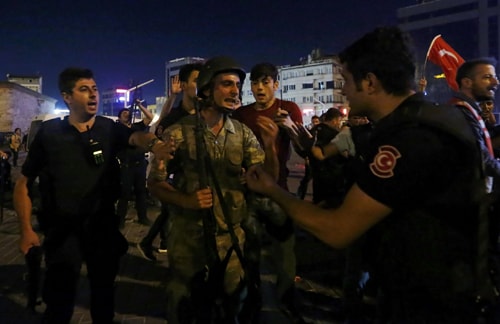 |
People questioned the soldiers who carried out the coup.Image:Reuters |
According to political scientist Naunihal Singh, the most important factor in determining the unity of a military coup is whether other soldiers believe the coup will succeed. If the coup leader can convince people that the government will surely fall and that the possibility of resistance is very small, the rest of the army is likely to side with them.
But if Türkiye's military leadership condemns the coup, it will be a sign that the adventure lacks widespread support and is doomed to fail.
Erdogan's power
As a leader who has been in power since 2003, Mr. Erdogan is described as a "fierce" person, holding a lot of power, and has repeatedly crushed pressure from the military.
In 2013, Mr. Erdogan scored a stunning victory over the military generals, jailing 17 people, including senior military officials, on charges of plotting to overthrow the ruling Justice and Development Party (AKP) in what became known as the “Ergenekon” affair.
In 2011, he led another major manhunt, arrests, and prosecutions in the “Operation Sledgehammer” case, which saw hundreds of military officers, journalists, and politicians tried on similar charges. In response, the commanders of the Turkish army, navy, and air force resigned en masse in protest.
Critics accuse Mr. Erdogan of using his power in the judicial system to silence political opponents, and say many military officers and politicians have been framed. But his supporters have welcomed the policy, saying it has also taken on previously untouchable officials who see themselves as pillars of the state.
Analysts say the recent coup was just a spontaneous act of a small group of officers and soldiers in the Turkish army, without the support of secular politicians, other military generals and the people.
According to Vox, when the coup happened, Erdogan was still able to "run wild", connect with the press, and call on thousands of supporters to take to the streets. Curfews and martial law were not enforced. The police, loyal to Erdogan, were ready to confront the army.
That explains why people poured into the streets to block tanks, insult the coup leader, and show strong support for Mr. Erdogan. A video posted on Twitter shows civilians storming CNN's office in Türkiye, arresting and beating soldiers involved in the coup.
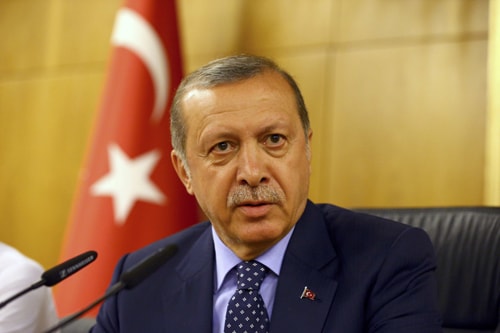 |
President Erdogan speaks after the coup.Image:Reuters |
Erdogan's foreign and domestic policies have been opposed by many secular and moderate politicians, but that does not mean they would support a coup against a democratically elected president. Many Turks have not forgotten the political and economic turmoil that followed previous military coups, and they do not want a repeat.
"This coup was simply a product of Islamist divisions within the military, and exploiting those divisions is not a guarantee of a coup's success," Stratfor stressed.
According to VNE
| RELATED NEWS |
|---|

